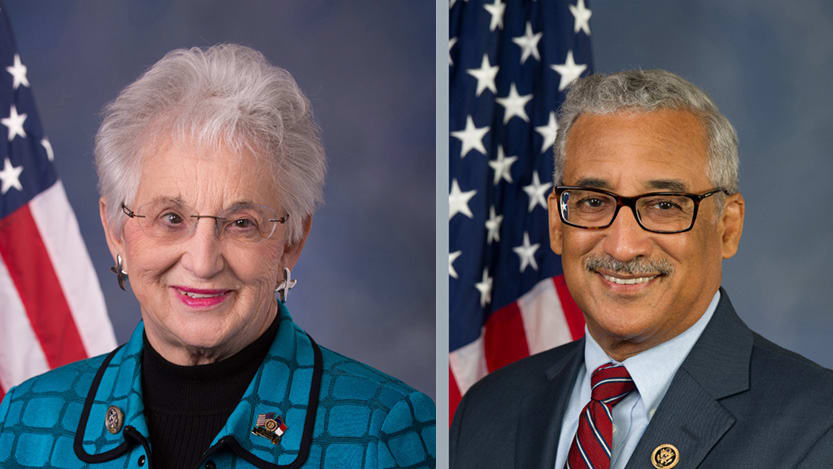Reaching Across the Aisle to Tackle Workforce Development
A Q&A with U.S. Reps. Bobby Scott, D-Va., and Virginia Foxx, R-N.C.

Last year, Congress passed legislation to provide critical funding for career and technical education. What workforce development issues will the 116th Congress address?
Scott: I am hopeful that our efforts to expand registered apprenticeships will be similarly successful. In my district, there is a Newport News apprenticeship center—connected to a local community college—that allows a person to go from unemployed to a good-paying job in shipbuilding within months. Too few of our industries provide these apprenticeship opportunities, and too few people enroll in them. Expanding access to high-quality registered apprenticeships is a goal that is within reach.
Foxx: Rather than creating new legislation, this committee should do our best to update the laws we already have and make them as good as they can be, by building in transparency and accountability. We’ll be very interested to check on the accountability metrics of the Workforce Innovation and Opportunity Act [signed into law in 2014] to see if it is meeting the needs of local areas.
What are your thoughts on the Trump administration’s proposal to develop an apprenticeship system that would parallel the U.S. Department of Labor’s registered apprenticeships? Critics have said that industry programs would not have to meet standards for wages, training, quality and equal employment opportunity.
Foxx: Those who push registered apprenticeships will be critical of new designs, but I’m not sure that criticism is valid. We should allow employers the flexibility to decide whether programs are adequate or not. I’m more likely to allow the private sector to work out what it needs. And I think it will happen. That’s why you’re seeing the growth of industry-created alternative workforce development programs.
Scott: The administration’s new Industry Recognized Apprenticeship Program threatens to undermine the success of apprenticeships by stripping away critical accountability provisions. One of the challenges facing apprenticeships is the stigma that they are second-class programs. If we lose the accountability component, we risk the short-term success of participating students as well as the long-term success of apprenticeship and certificate programs. Moving away from registered apprenticeship programs also makes it more difficult for students to demonstrate their qualifications to potential employers.
The Higher Education Act (HEA) is up for reauthorization and could be one of the most important pieces of legislation the committee works on this Congress. How will you ensure that higher education is aligned with the needs of today’s economy?
Scott: There is bipartisan agreement that our approach to higher education should better reflect the variety of pathways students take to a rewarding career. Expanding federal support, including Pell Grants, to students attending quality short-term programs that provide an accelerated path to the workforce is a goal that is widely shared. Employer-provided education assistance is another important tool to support working students.
Foxx: The Higher Education Act has been outdated for some time, and it is abundantly clear that our postsecondary education system is broken. Right now, we have a skills gap of more than 7 million unfilled jobs and aggregate student debt of more than $1 trillion. Last Congress, this committee approved legislation to reform postsecondary education comprehensively. The PROSPER Act would expand access to apprenticeships and “earn-and-learn” programs while simplifying student aid.



